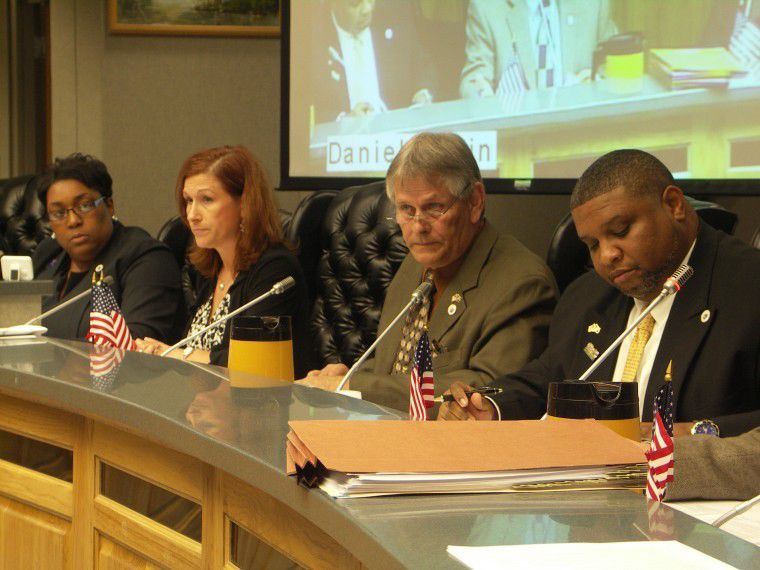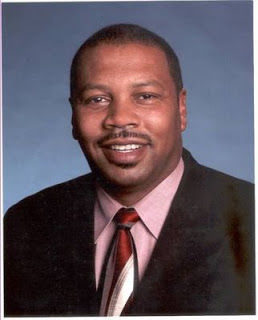
Celebration for our coach: Community to honor Orgeron
February 14, 2017
Terrebonne approves pay raises for officials
February 14, 2017In less than one month’s time a federal judge in Baton Rouge will begin hearing witnesses and viewing evidence on the question of whether the method Terrebonne Parish uses to choose its judges violates the U.S. Voting Rights Act.
If the script currently before the court is followed, U.S. District Judge James Brady will be hearing from a who’s who of Terrebonne Parish political and judicial figures before the end of the trial, which begins March 13.
The Terrebonne Parish NAACP and several individuals filed suit in the U.S. District Court for the Middle District of Louisiana in 2014, alleging that election of judges using an at-large system – meaning each of the parish’s five judges is voted on by the entire electorate of Terrebonne Parish – violate the law. At-large voting schemes, the plaintiffs maintain, dilute the potential that populations of racial minorities can elect candidates of their choice.
The Governor of Louisiana is named as defendant in the suit. Bobby Jindal was governor when the suit was filed and it still contains his name.
Parish President Gordon Dove, District Attorney Joe Waitz Jr. and other officials both current and former are named as witnesses in the latest list presented to the court. Also named as a witness – by both sides – is State District Judge Juan Pickett. He was elected without opposition and became the first sitting black judge Terrebonne Parish history.
The remedy that the plaintiffs recommend is creation of a minority subdistrict, and/or breaking down the parish into five judicial subdistricts. At least one of those would be drawn to reflect an alleged concentration of minority voters.
“We have been waiting over 18 years to get to this point and now the time has come and I am looking forward to having my day in court,” said Terrebonne NAACP President Jerome Boykin during a Monday interview.
Among other witnesses being called is a retired Terrebonne Parish judge, Timothy Ellender Sr. Disciplinary action taken against Ellender during his tenure was born of a Halloween prank. Ellender garnered nationwide publicity after it was learned that he appeared in a local restaurant wearing an inmate jumpsuit, Afro wig and dark face paint. At the time Ellender denied any racist intent.
He was suspended from the bench for six months and ordered to undergo sensitivity training.
The episode is mentioned in court documents as proof of a racially troubled Terrebonne Parish history.
Gordon Dove, as a state legislator, was an outspoken opponent of minority district creation. As Terrebonne Parish President he sought to have the parish enter the suit as an intervening party in order to “have a seat at the table” to argue against creation of a minority subdistrict. That request was denied by Judge Brady.
Dove and other opponents of the subdistrict plan say that Pickett’s election without opposition should be proof enough that Terrebonne Parish has not objection to having a black judge. The plaintiffs, however, maintain that the question does not involve the race of the candidates. Rather, it is whether any judicial candidate is one that a bloc of minority voters would find appealing or acceptable that is the issue. Just because Pickett is black, they have maintained, it does not stand to reason that he might have been the favored choice of black voters.
In its pre-trial brief, the state argues that the current voting practice was not imposed “in a manner which results in a denial or abridgment of the right to vote on the account of race or color.”
“To the extent that plaintiffs try to incorrectly impute liability from actions of other elected officials or branches of government to the Governor and Attorney General, the evidence will show that Louisiana has a compelling interest in maintaining its electoral system which preserves the link between a district judge’s parish-wide territorial jurisdiction and the area of residency of his or her voters,” the state’s pretrial brief says, “The interest in the linkage of an electoral and jurisdictional base is substantial and integral to the judicial office … (the) Governor and Attorney General maintain that they are not the proper party defendants, and they do not have the power or authority to grant the relief Plaintiffs seek.”
“The evidence will show that Plaintiffs cannot prove that the minority group is politically cohesive and that the white majority votes sufficiently as a bloc to enable it to defeat the minority’s preferred candidate,” the brief continues. “Plaintiffs’ experts examine elections dating back almost twenty-five years ago. Defendants’ experts will testify that elections from twenty-five years ago are stale and not probative. For example, analysis by experts will reveal that very few of the same voters that were on the voting rolls back in 1993 remain on the rolls today.”
In the pre-trial briefs filed by the NAACP Legal Defense Fund for the plaintiffs, the Ellender incident is mentioned prominently.
“In the past decade, at-large voting … enabled a sitting white judge to be reelected without opposition, even after the Louisiana Supreme Court suspended him for wearing blackface, an orange prison jumpsuit, handcuffs, and an afro wig as part of his apparent parody of black criminal defendants who appeared before him,” the brief states. “For more than two decades, the Terrebonne NAACP has advocated for a district-based electoral method … Across seven biracial elections conducted parish-wide and at-large between 1993 and 2014, black voters gave an average of 87% of their support to the black candidates that they preferred. White voters in Terrebonne vote sufficiently as a bloc to systematically defeat Black voters’ candidates of choice. In the same seven biracial elections, non-Black voters gave an average of only 8% of their support to the candidates preferred by black voters. Racially polarized voting over a 21-year period has led to the consistent and overwhelming defeat of the candidates of choice of black voters, regardless of whether those candidates have run as Democrats, Republicans, or otherwise, or for judicial or non-judicial offices.”
The plaintiff brief says that at trial attorneys will show that “Louisiana and Terrebonne have long, intense, and persistent histories of de jure and de facto discrimination against black voters that extends to the use of at-large voting for judges.”
“The use of voting devices such as a majority-vote requirement and division posts for the 32nd Judicial District further impair black voting strength,” the brief states. “The impact of historical and ongoing racial discrimination in education, employment, health, and other areas of life has resulted in stark socioeconomic disparities between Black and white residents in Terrebonne—for example, the poverty rate for Black people is approximately three times that for white people—and as a consequence, has depressed Black political participation—as shown by consistently lower rates of turnout for Black voters in Terrebonne and the justifications for maintaining at-large voting for the 32nd Judicial District are tenuous at best.”
Leah Aden, lead counsel for the case appearing on behalf of the NAACP, said the March 13 trial opening has been long awaited by the plaintiffs “after decades of trying to change the electoral method through the political process. We are excited to be in federal court to demonstrate that black voters are being denied an equal opportunity to elect their choices for judge.” ·










